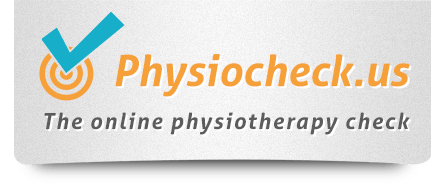Extensive patient reports
e-Health for physiotherapists
Make use of our extensive patient reports and receive an extensive report with information about the patient's complaints before the first appointment with the patient. The report contains information about the origin and development of the complaints, results of the movement analysis and specific self-tests, red flags and a preliminary result with possible disorders.
How does it work?
After going through our physiotherapy check, patients can easily share the entered data with a physiotherapy practice.
The physiotherapist now receives the fully completed questionnaire as well as a complete patient report containing the findings of the physiotherapy check.
The patient report is written entirely in medical terminology and can be used as a supplement to the patient's file.
Thanks to the report, the physiotherapist is better prepared before the first appointment with the patient takes place.
Moreover, the use of the report reduces the physical therapist's administrative burden.
With this e-Health widget, your practice will benefit from the following options:
- Full report
The patient report contains information about the site of the symptoms, their origin, their development, disorders, restrictions, causes of (poor) health, results of examination/(self) tests, red flags and a result with possible disorders. - Better prepared
The physiotherapist can be better prepared before the first appointment with the patient. - Less administrative work
The patient report can easily be added to the patient file as additional information. - Medical terminology
The report is drawn up entirely in medical terminology so that its information fits seamlessly with the data in the electronic health record (EHR). - Effective
The patient can immediately digitally share the results of the check with your practice. You can choose whether patients receive the results at the end of the check. - EHR link
Thanks to the link with the EHR, the data are loaded directly into the patient's file.
Example
View a sample of an extensive patient report here:
Results
- 1 Acute hamstring injury 77%
- 2 Hamstring injury 54%
- 3 Myositis ossificans 11%
- 4 Bruising 2%
- 5 Lumbar spinal stenosis 0%
Interpretation of the results
Match to likely condition: 0-30 % (low), 30-55 % (fair), 55-75 % (likely), 75-100 % (high)
Below is a small subset of the questionnaire as an example. You will normally receive the full completed questionnaire from each patient.
How did the symptoms start?
- At a specific moment (it happened suddenly)
- Developed gradually
- I don't know
Did something or someone hit your body and that caused these symptoms?
- Yes
- No
For how long have you had these symptoms?
- 1 day
- 2 to 6 days
- 1 to 3 weeks
- 3 to 6 weeks
- 6 weeks to 3 months
- 3 months to 6 months
- 6 months to 1 year
- More than 1 year
- More than 10 years
How have the symptoms changed over time?
- Increased (the symptoms have become worse)
- Unchanged (the symptoms have remained the same)
- Decreased (the symptoms have reduced)
- Variable (sometimes I suffer more and sometimes I suffer less)
During which activity or activities do you experience your symptoms most severely?
- Walking on level ground
- Walking on uneven ground
- Walking downstairs
- Walking upstairs
- Walking downhill
- Walking uphill
- Running
- Running downhill
- Running uphill
- Sprinting
- Cycling on the flat
- Cycling up a hill or mountain (or cycling against the wind)
- None of these activities
Perform the following strength test:
- Sit on a chair.
- Cross your affected leg over the other leg as shown in the video.
- Try to push the heel on the affected side backward while resisting the movement with your other leg.
Does this cause symptoms you recognize?
- Yes, it causes pain in my buttock area
- Yes, it causes pain at the back of my thigh
- Yes, it causes pain at the back of my knee
- No
End of example.
Are you interested?
Please contact us or just register your practice now.

